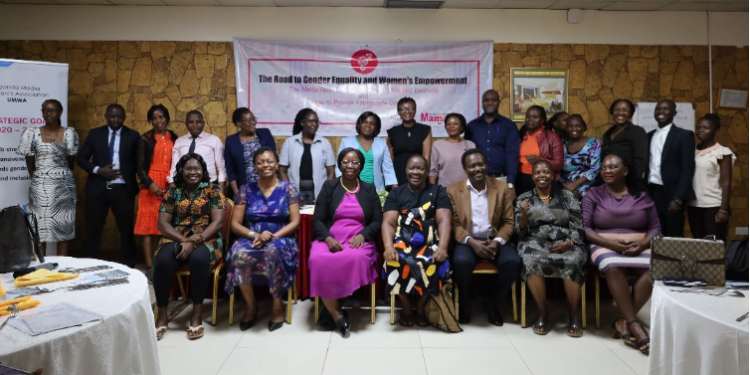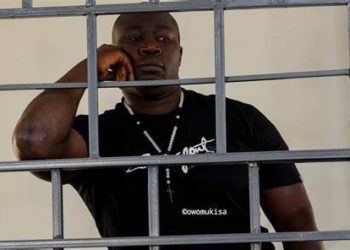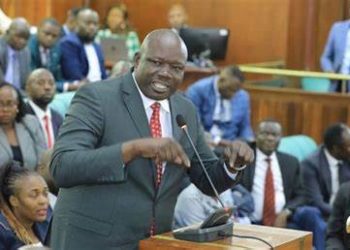By CHIMPREPORTS
A media forum organized by the Uganda Media Women’s Association (UMWA), brought together media practitioners, government representatives, and civil society organizations to discuss the ongoing challenges in achieving gender equality and women’s empowerment and the importance of International Women’s Day.
The forum, themed “Road to Gender Equality and Women’s Empowerment: Reflecting on the Unfinished Business” focused on the crucial role the media plays in shaping narratives and driving societal change.
According to Margaret Ssentamu, the Executive Director of UMWA, “There is a lot of knowledge gap about so many things, not out of right side, but I feel because of the cultural way, the way we have been worked out. We need a very strong and very urgent and intentional intervention to address the knowledge gap among the media practitioners and also managers, because the media is in the center. Once you impact the media, other sectors will also be affected.”
As a call to action, Margaret said, “We have run a program called Media for Gender Equality and Social Justice, living no one behind. We have trained about a thousand plus journalists in generous points of reporting. We trained women leaders, particularly at the lower level, to know how to strategically use the media, and conducted gender media monitoring to improve the representation of women in the media.”
“We need to have long-time programs that can be sustainable for a meaningful change, because today you do have projects that will last one year, maybe three years,” Ssentamu asserted.
Dr Patricia Litho, the Board Chair of UMWA, emphasized that, “As members of the media, we hold a unique responsibility in shaping narratives and driving society to change.”
“Furthermore, we must examine the inclusivity of media education, ensuring that gender equality remains an integral component of our curricula, as we’ve been recognized as a strategic partner in government companies,” said Litho.
Brenda Namata, Communications and Advocacy Officer of UMWA, shed light on the challenges faced by female journalists in newsrooms.
“We have discovered that the leading cause of female journalists leaving media houses is because of sexual harassment, the issue of discriminatory pay gaps where female journalists are being paid less than the male practitioners in some of the newsrooms. The other challenge is the irresponsive work environment, where maternity leaves are not respected.”
In response, Namata stated that, “We have undertaken interventions like training female journalists on safety and security tips of how do you navigate amidst all the threats in the work environment. Secondly, we have engaged with media management and editors to see that they create an environment that is conducive to female journalists to execute their duties as media practitioners.”
Dick Nvule, editor with Radio Simba said, “We should put women in leadership roles, and when they are there, they should also walk their talk. I will only put you in the news because you made news, not because you are a woman as a person.”
Additionally, Nvule said, “Attract the editors and the talk show hosts will to call you. We don’t call people on TV or on radio just to feel space that have had very many men, and I think I should call the women. We call them because they have content to tell to the world.”








Discussion about this post